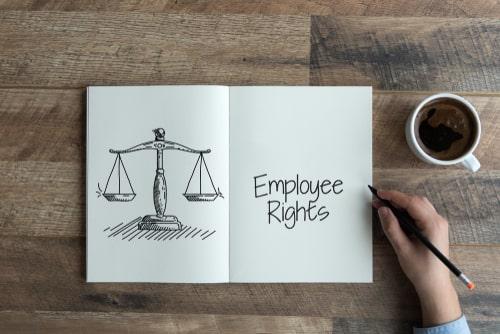
 847-995-1205
847-995-1205
Can Employers Face Penalties for Interfering With Employee Rights?
 Employers have a legal obligation to ensure that their employees are treated fairly and with respect. Violating the rights of employees can result in stiff penalties from government entities, including fines, the requirement to pay monetary damages to employees or former employees, or even potential jail time in certain situations. It is important for employers to understand the types of activities that are prohibited and the potential consequences that they may face if they violate the rights of their employees. Employers will also need to understand the burden of proof that will apply if they are accused of committing these types of violations.
Employers have a legal obligation to ensure that their employees are treated fairly and with respect. Violating the rights of employees can result in stiff penalties from government entities, including fines, the requirement to pay monetary damages to employees or former employees, or even potential jail time in certain situations. It is important for employers to understand the types of activities that are prohibited and the potential consequences that they may face if they violate the rights of their employees. Employers will also need to understand the burden of proof that will apply if they are accused of committing these types of violations.
Employee Rights and Protected Employee Activities
There are multiple federal and state laws that apply to the relationships between employers and employees, including the National Labor Relations Act (NLRA), the Whistleblower Protection Act (WPA), and equal employment opportunity (EEO) laws. Under these laws, employers may be penalized for engaging in activities such as:
-
Interfering with employees' rights to organize - Employers cannot take action to prevent employees from forming unions. They are prohibited from threatening adverse consequences if workers engage in union-related activities or promising benefits to employees who do not join a union. They are also prohibited from taking action to stop "concerted activity" in which two or more employees join together to address the terms of their employment or raise concerns about conditions in the workplace.
-
Prohibiting employees from discussing wages - Employers cannot implement policies preventing workers from talking to each other about their wages or benefits, and they cannot penalize employees who discuss these issues, raise concerns about the pay provided to different people, or take steps to organize and bargain for higher pay.
-
Retaliating against employees who engage in protected EEO activity - Employees have the right to oppose discrimination in the workplace, including making complaints to an employer about perceived discrimination or refusing to follow policies or obey orders that they believe are discriminatory. Employers cannot penalize employees for reporting discrimination, filing discrimination claims, participating in investigations of alleged discrimination, or making requests for workplace accommodations based on disability or religion.
-
Retaliating against whistleblowers - Employees have the right to report safety issues in the workplace or violations of the law, such as fraud or wage and hour violations. Employers are prohibited from penalizing employees who have made these types of reports, such as by firing or demoting a person, reducing their pay or the hours they work, or denying them a promotion.
Employers may face fines and penalties if they are found to be in violation of these laws. If their actions caused harm to employees, they may be required to compensate employees for back pay or wages they should have earned, and they may be required to reinstate an employee to a former position or grant a promotion that was improperly denied. In some cases, an employer who repeatedly or willfully violates laws that protect the rights of employees may face criminal charges, and if they are convicted, they may face steep fines and even jail time.
Contact Our Illinois Employer's Burden of Proof Attorney
It is essential for employers to be aware of employee rights and protected employee activities in order to avoid potential penalties. There are multiple government organizations that enforce these laws, and employers who are subject to investigations by government officials will need to determine the best steps they can take to protect against penalties and resolve these matters successfully. Knowing employees' rights can help employers stay compliant with state and federal regulations while also protecting themselves from costly lawsuits down the line. At The Miller Law Firm, P.C., our Schaumburg employer defense lawyer can provide legal guidance and representation in cases involving employee rights. If you are facing a potential liability issue or claims that you have committed violations, we can help you determine how to proceed. Contact us today at 847-995-1205 to set up a free consultation and learn more about how we can help you.
Sources:
https://www.nlrb.gov/about-nlrb/rights-we-protect/the-law/interfering-with-employee-rights-section-7-8a1
https://www.dol.gov/agencies/oasam/centers-offices/civil-rights-center/internal/policies/retaliation
https://www.dol.gov/general/topics/whistleblower
https://www.nlrb.gov/about-nlrb/rights-we-protect/your-rights/your-rights-to-discuss-wages
Contact Us


Schaumburg, IL 60173
Phone: 847-995-1205
